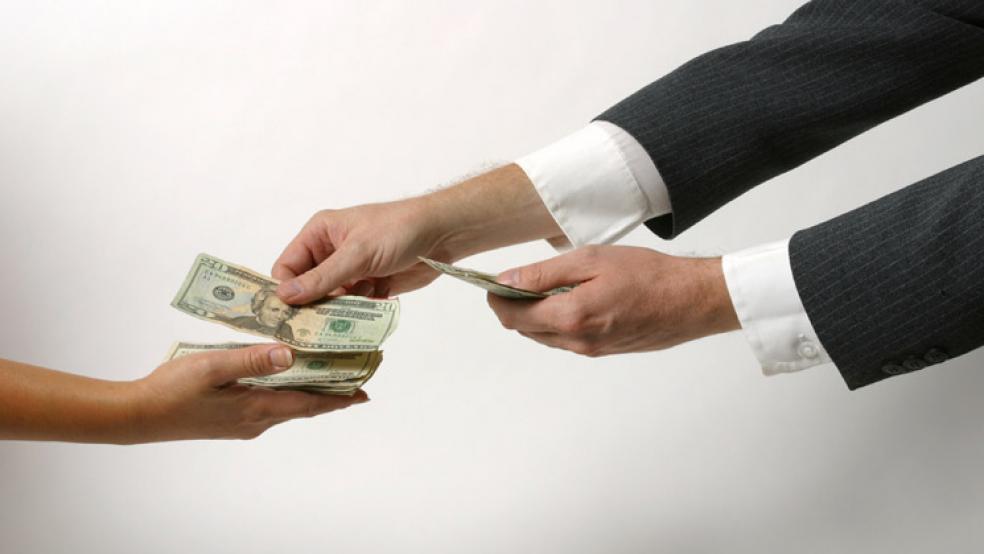Democrats are whooped up about the Supreme Court’s most recent decision relaxing limits on campaign contributions which, according to Justice Breyer, could “devastate what remains of campaign finance reform.” Not to be impolite – but the average American might wonder, what exactly does remain of campaign finance reform?
For decades lawmakers have agonized over the ability of wealthy individuals, unions and corporations to influence the outcome of elections, an especially poignant concern to those who have been outspent. Numerous efforts have been made to stem the tide, the most consequential and sweeping of which was the McCain-Feingold Act in 2002, which responded to a surge in campaign outlays. Candidates running for president in 1976 spent $67 million; by 1992 that figure had soared to $240 million.
Related: Gibbs: This Could Be ‘Lights Out’ for the Dems
Eight years later, spending had jumped to $343 million, alarming the wizards on Capitol Hill, who rallied the troops and passed the bipartisan reforms. That 2002 law was meant to rein in a “dangerous” trend in political spending. In the very next election, the 2004 race in which Bush beat Kerry, candidates doled out $718 million, or more than twice the prior total. Oops. Since then, of course, the numbers have increased; we now have billion-dollar elections.
So much for legislated limits on campaign spending. Should we care? Economists like Ansolabehere, de Figueiredo and James M. Snyder argue in a scholarly 2002 piece for the National Bureau for Economic Research that we in fact spend surprisingly little on political campaigns. They make a good case that “campaign giving is a normal good, dependent upon income, and campaign contributions as a percent of GDP have not risen appreciably in over 100 years; if anything, they have probably fallen.” They dispute “the popular notion that contributions buy legislators’ votes”…and conclude “there is little relationship between money and legislator votes.”
It is true that Americans generally poll in favor of limits to campaign spending. A year ago, 80 percent of Americans said, given the opportunity, they would vote to limit the amount of money Congressional candidates could spend. That view was widely shared, and mimicked earlier polls.
Related: GOP’s Midterm Back-Up Plan—National Security
Given that most of the polling was done as we recovered from campaign season – a time when the airwaves are choked with political messages that could render a person senseless from boredom -- OF COURSE people want the amount capped.
Whether they want their spending limited, however, is a different matter. That was the issue raised in the recent case brought by Shaun McCutcheon, an
The decision alarmed Democrats, who believe that the earlier Citizens United case began a downhill slide into unfettered spending. The curious thing is that Democrats have proven themselves quite capable of matching the fund-raising heft of Republicans, and of winning elections. In the 2012 presidential election, President Obama’s backers spent $875 million, compared to $845 million for Mitt Romney.
More revealing is the list of “heavy hitters” published by Open Secrets, the all-time biggest donors between 1989 and 2014. Every single one of the top 16 contributors on that list gives to Democrats; only five give to Republicans. The top donors are ActBlue, a Democrat PAC that has spent more than $100 million; AFSCME, the labor union that represents public employees; the biggest teachers union, the International Brotherhood of Electrical Workers, the UAW and so on. Given the history, it is hard to take their protests seriously; on nearly every front, Dems have joined the party, as has President Obama.
Related: Congress Does Something--Pushes $127 Billion in Tax Breaks
Obama’s campaign successfully attacked Mitt Romney’s wealth and success, financed in part through the $65 million spent by Priorities USA Action. The president’s powerful Super-PAC was set up in 2011 with seed funding from the SEIU and Dreamworks CEO Jeffrey Katzenberg (whose net worth is close to $900 million). Obama initially kept his distance from the money machine, for good reason. In response to the Citizens United decision in 2010, the president had thundered that Super-PACs were “a threat to democracy.” Another dotted line in the sand.
It was not the first time Obama flip-flopped on campaign finance reform. When he first ran for president, he vowed during the primaries to rely on public financing – a pledge he quickly ditched after winning the nomination, even though his rival John McCain stood by that promise. Obama outspent McCain by $745 million to $367 million.
After the most recent Supreme Court ruling, The New York Times, in an unusual moment of equilibrium, stated that it was unclear which party would benefit more from the ruling. They quoted Democrat Chuck Schumer who said, “That is a $123,000 question: Which side has more donors who are willing to keep giving above that amount. Nobody really knows….”
The truth is, the nuclear arms race in political funding is not going to be curbed by legislation, and to date it is hard to document either party being disadvantaged by the ongoing rise in spending.
Top Reads from The Fiscal Times:





